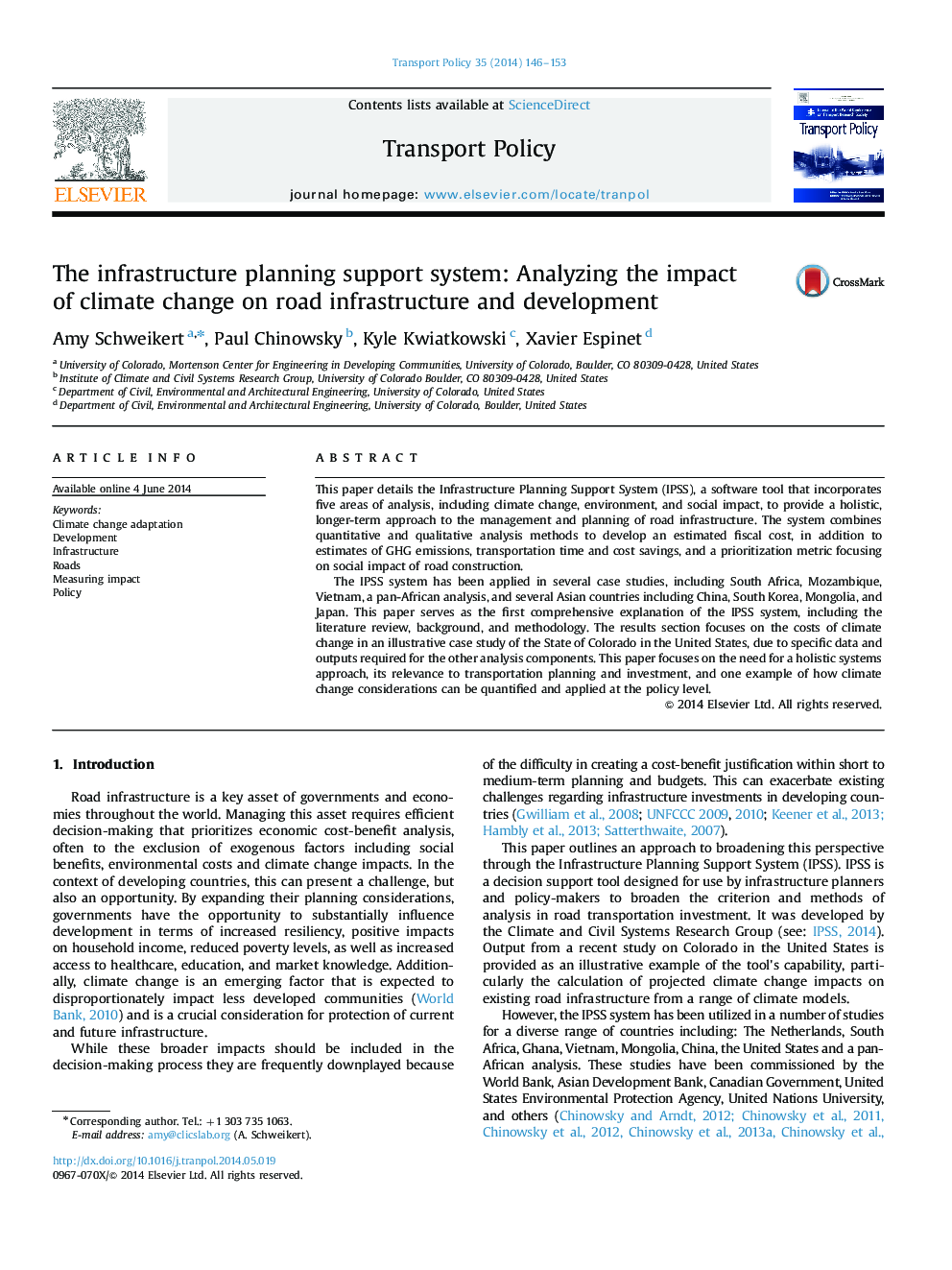| Article ID | Journal | Published Year | Pages | File Type |
|---|---|---|---|---|
| 1064868 | Transport Policy | 2014 | 8 Pages |
•Holistic road infrastructure planning increases road resilience to climate change.•IPSS assists policy-makers in holistic road infrastructure decision-making.•Climate change poses a threat to existing and future road infrastructure.•Developing countries face a disproportionately high cost from climate change.•Proactive adaptation to climate change is economically beneficial in many countries.
This paper details the Infrastructure Planning Support System (IPSS), a software tool that incorporates five areas of analysis, including climate change, environment, and social impact, to provide a holistic, longer-term approach to the management and planning of road infrastructure. The system combines quantitative and qualitative analysis methods to develop an estimated fiscal cost, in addition to estimates of GHG emissions, transportation time and cost savings, and a prioritization metric focusing on social impact of road construction.The IPSS system has been applied in several case studies, including South Africa, Mozambique, Vietnam, a pan-African analysis, and several Asian countries including China, South Korea, Mongolia, and Japan. This paper serves as the first comprehensive explanation of the IPSS system, including the literature review, background, and methodology. The results section focuses on the costs of climate change in an illustrative case study of the State of Colorado in the United States, due to specific data and outputs required for the other analysis components. This paper focuses on the need for a holistic systems approach, its relevance to transportation planning and investment, and one example of how climate change considerations can be quantified and applied at the policy level.
